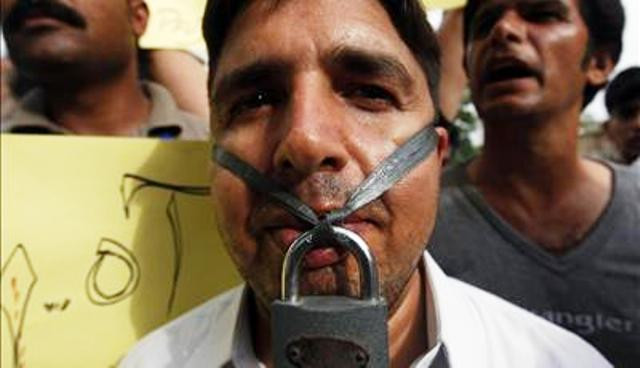On the sidelines of a conference on education at a well-reputed engineering university, a young student asked me why privately-owned news channels and newspapers “always” lead with negative stories. I told him that while the simple answer is that bad news sells, and the media depends on viewership to bring in advertising, it is not always about money.
The young engineer had also asked me why the news was so much more positive when there was only PTV.
I told him that without complete removal of government influence over the editorial policy of the state broadcaster - which has never existed - it would really be a stretch to refer to broadcasts on government-owned media as “news”. There is a reason that Radio Pakistan and PTV headquarters were the first places where military coup architects deploy boots on the ground, and it was to take immediate control of the propaganda machinery.
It is the same reason that state-run media never has any exposés on governmental corruption.
In the Soviet Union, the communist party approved the appointments of editors of all major newspapers. The result was that all reports comprised the communist party’s preferred version of events, and free-thinking intellectuals mistrusted what should have been the primary sources of current affairs updates.
The situation in Pakistan was no different until deregulation under General Musharraf. There was some irony in the fact that the free media was born thanks to the swoop of a pen in the hand of a man who had himself come to power amid a media blackout.
The future engineer blamed the private media for presenting a negative image of Pakistan to the world. I told him that the “world” is not the target audience. We have a moral responsibility to show other Pakistanis what is wrong in the country, so that the masses recognise the need to correct those things, whether it is by petitioning their local elected and unelected leaders or through widespread public mobilisation.
Unfortunately, whether it is due to public apathy or the media’s failure to continue highlighting these issues, there is rarely any support from the masses - only the same handful of civil society and rights activists, combined with the odd-representative of NGOs working on related issues.
This is illustrated by the reaction, or lack thereof, to reports of violent rape cases, parading women naked through streets, child molestation, and other forms of sexual and physical abuse. The Shahzeb Khan case may be seen as an example of effective mobilisation, but it may be argued that the politicisation of the case is what really made the people come out to protest, rather than Karachi’s worryingly high crime rate.
What about the victims of crimes where no big names were involved?
For the past few weeks, the world has watched Indians protesting en masse over the horrific rape of a young woman in Delhi. People cried when they read about the ordeal she was put through. They were enraged when some corners tried to justify the brutal assault by mentioning she was on a date or making comments on what she may or may not have been wearing.
Later, there were moving scenes as tributes were paid to her and millions of other faceless victims from across the country when it became known that she had lost her battle for life.
The public outcry pushed parliamentarians in India - which like Pakistan has well-established misogynistic undercurrents in its society to act in the interest of its largest oppressed group, with new legislation for such crimes expected in the near future.
That is the power of mobilisation, and that is why the media portrays a “negative” image of Pakistan.
Read more by Vaqas here or follow him on Twitter @vasghar
What stories like Shahzeb Khan's do to a nation
What about the victims of crimes where no big names are involved? Are they served justice?


COMMENTS
Comments are moderated and generally will be posted if they are on-topic and not abusive.
For more information, please see our Comments FAQ